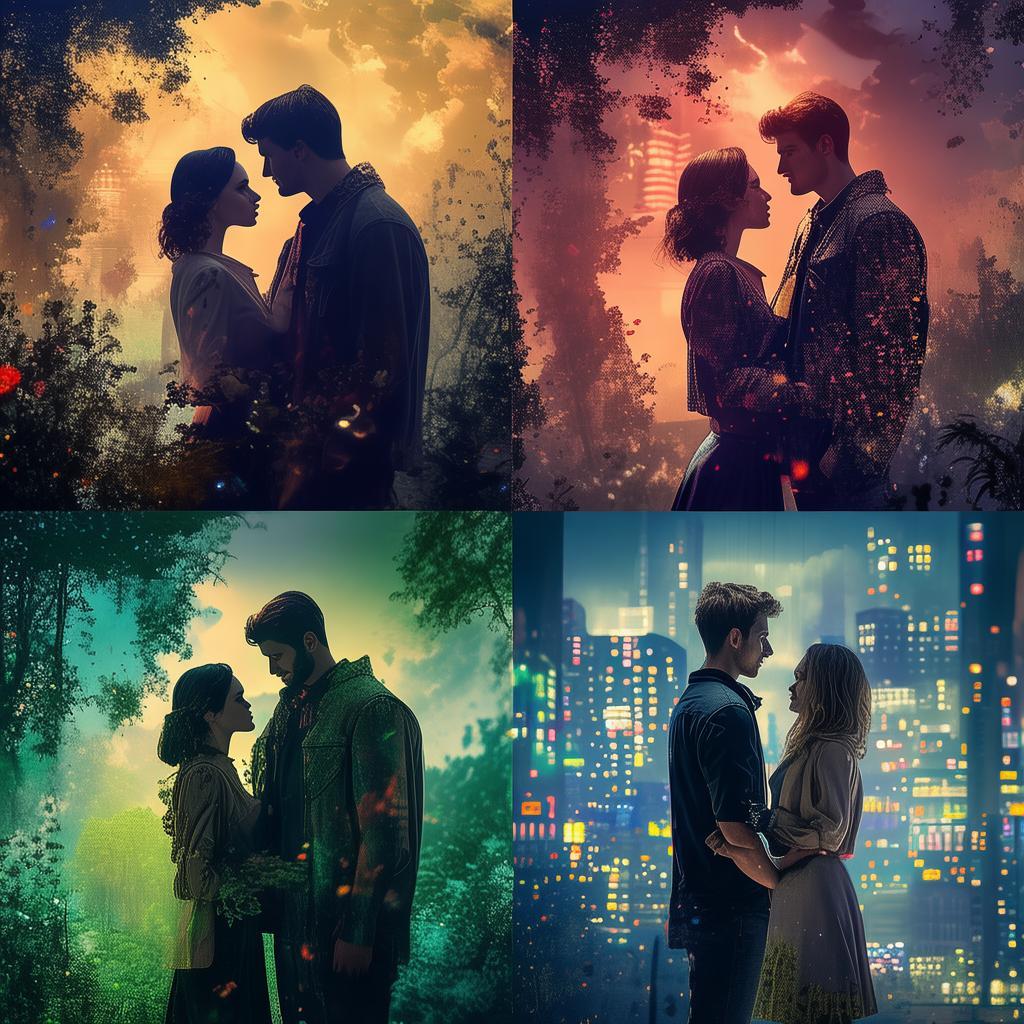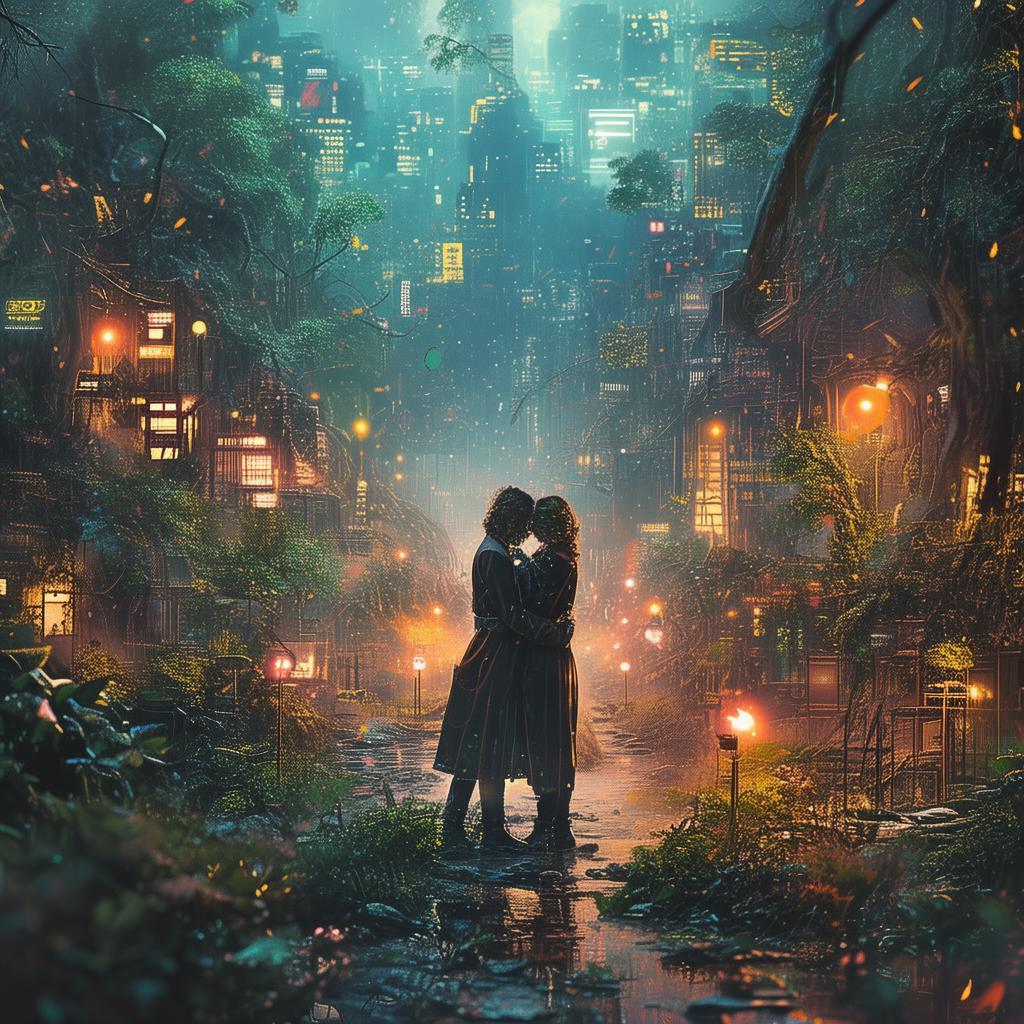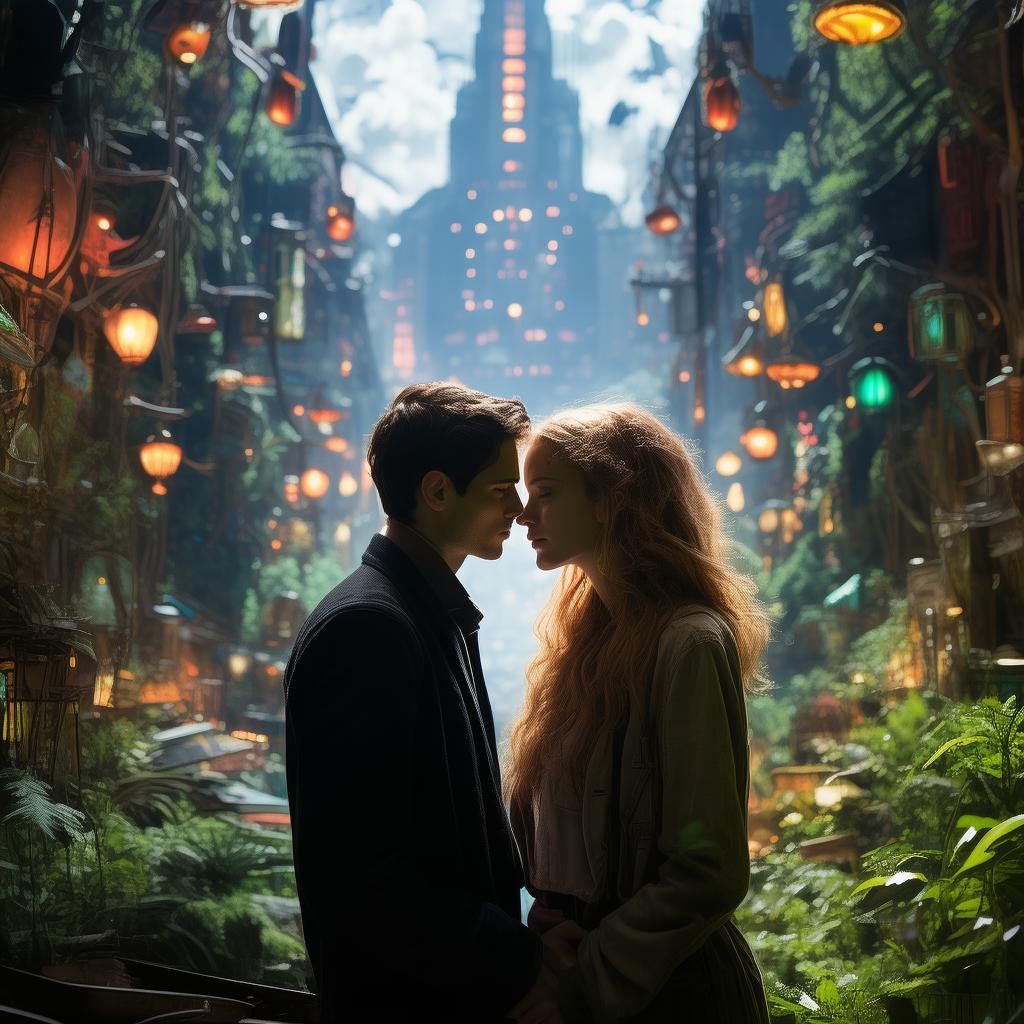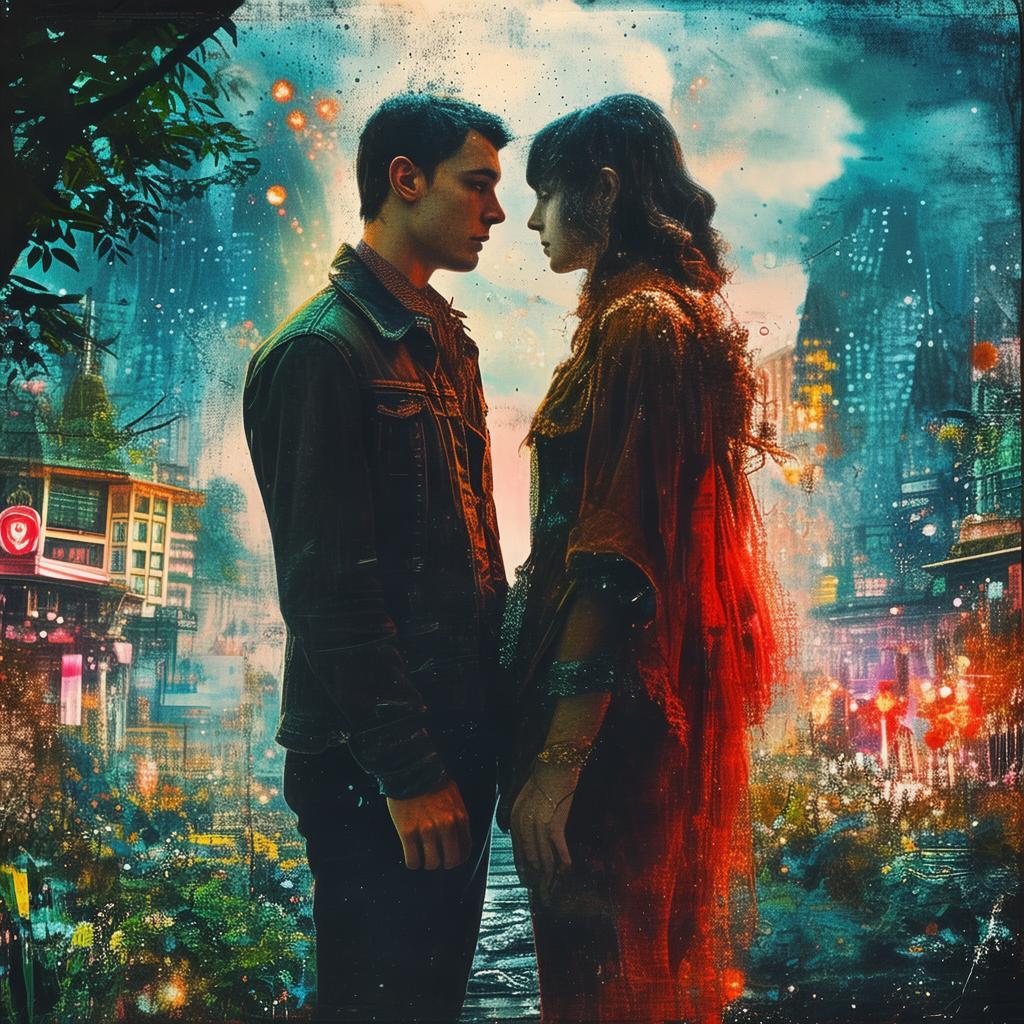Shadows of the Tokyo Night: A Tale of Love and Illusion
In the heart of Tokyo, where the neon lights flicker against the night sky, there stood an old, art deco building that seemed to hold secrets within its creaking walls. It was here, in this building that had once been a hub for artists and dreamers, that Akira and Yumi had found solace from the world's chaos.
Akira was a philosopher, a man who sought to understand the mysteries of life through the lens of philosophy. His days were filled with debates, books, and contemplation, while his nights were spent wandering the streets of Tokyo, lost in thought and the city's constant hum.
Yumi, on the other hand, was an artist. Her canvases were a patchwork of colors that seemed to tell tales of her own experiences, a blend of joy and sorrow, light and shadow. She found solace in the city’s darkness, where her art could be as abstract and complex as her feelings.
Their paths crossed in an unexpected way. One evening, as Akira sat on the steps of a nearby temple, lost in a contemplation on the nature of reality, Yumi wandered by with a paintbrush in hand. Her eyes met his, and in that instant, a connection was forged.
They began to meet regularly, their conversations a dance between philosophy and art. Akira spoke of love as a concept, while Yumi painted it as a tangible emotion. Their love grew, a complex tapestry woven from the threads of their intellectual pursuits and creative passions.
As their relationship deepened, Akira realized that Yumi was not just his lover but his greatest philosophical challenge. She embodied the contradictions he so often wrote about—the beauty of light and the darkness of shadows. It was in her that he saw the essence of human experience, the eternal struggle between clarity and confusion, between the known and the unknown.
One night, as they walked along the riverbank, Akira turned to Yumi and said, “You are the darkness, the shadow, and the light. How can I claim to understand love when it is so much more than I can comprehend?”
Yumi smiled, her eyes reflecting the moonlight. “Then we must be in love not in understanding but in acceptance. Love is an illusion, a dance between the visible and the invisible. And in that dance, we find our truth.”
Their love was not without its challenges. The city of Tokyo, with its fast-paced life and constant movement, seemed to be pulling them apart. Akira often found himself returning to the comfort of his books, while Yumi sought refuge in her art.

One evening, as they stood in the gallery where Yumi’s latest exhibition was being displayed, Akira noticed a painting that seemed to capture their love’s essence. It was a black canvas with a single white light shining through from the side, casting long shadows across the surface.
He walked over and looked at it closely. “This is us,” he said, pointing to the shadows. “You are the light, and I am the shadow. Our love is an illusion, a reflection of the world around us. But in those shadows, there is truth.”
Yumi nodded, her eyes glistening with tears. “And in those truths, we find each other. We must not fear the darkness, for it is in the shadows where we are truly seen.”
Their love was a reflection of the city itself, a complex dance between the light and the dark. It was in the Tokyo night’s shadows that they found their greatest strength and their deepest connection. And though their love was often an illusion, it was an illusion that brought them closer together, revealing the true nature of their bond.
As the years passed, Akira and Yumi continued to navigate the intricate dance of their love. They found solace in the city’s enigmatic allure, in each other’s company, and in the shared understanding that their love was a reflection of the world they lived in.
And so, they danced, a silent waltz in the Tokyo night, their love a testament to the enduring power of the human spirit and the beautiful, often elusive nature of romance.
✨ Original Statement ✨
All articles published on this website (including but not limited to text, images, videos, and other content) are original or authorized for reposting and are protected by relevant laws. Without the explicit written permission of this website, no individual or organization may copy, modify, repost, or use the content for commercial purposes.
If you need to quote or cooperate, please contact this site for authorization. We reserve the right to pursue legal responsibility for any unauthorized use.
Hereby declared.









